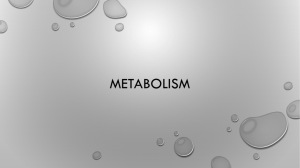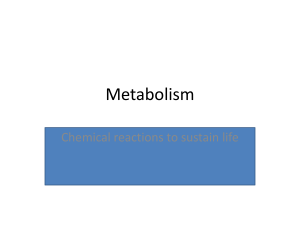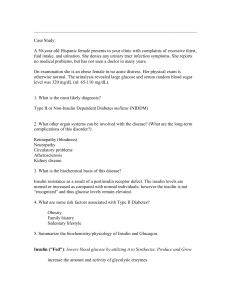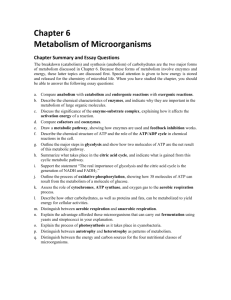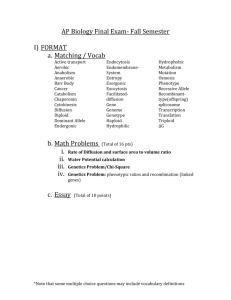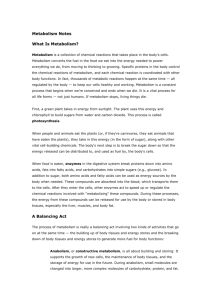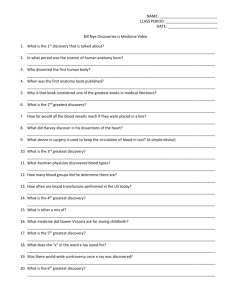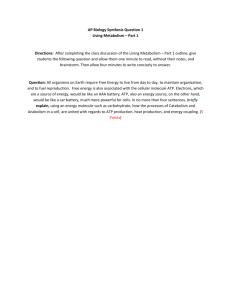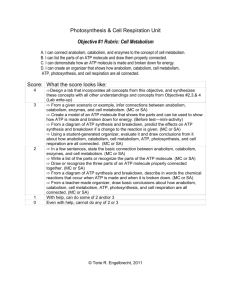Unit 3.2 Carbohydrate and Fat Metabolism
advertisement
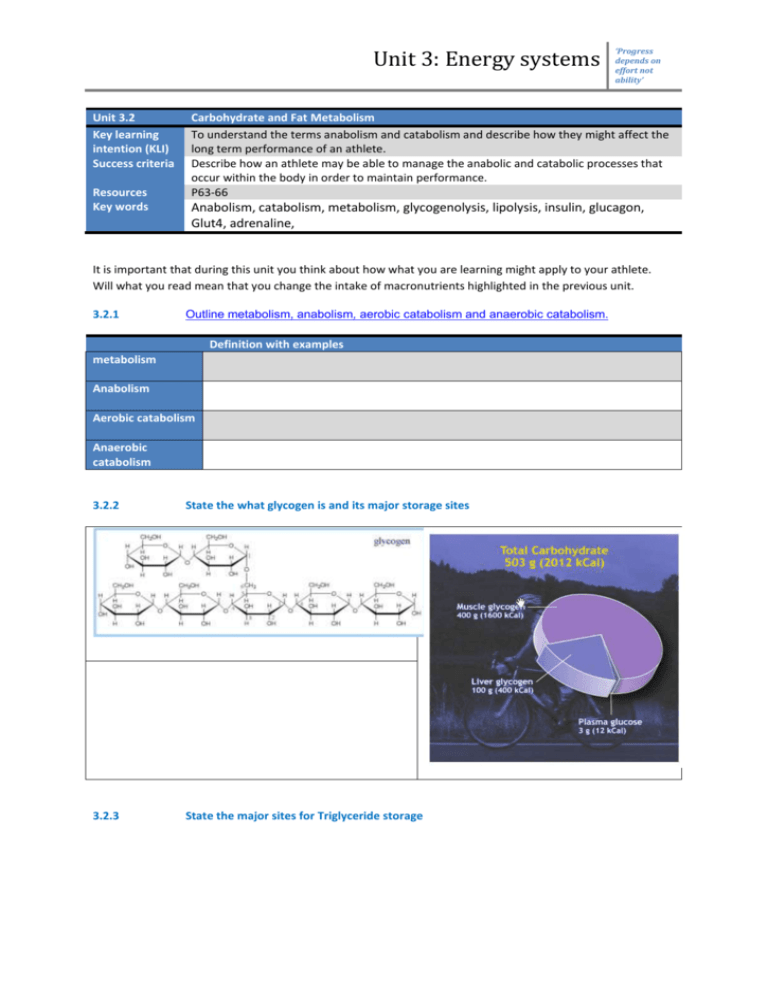
Unit 3: Energy systems Unit 3.2 Key learning intention (KLI) Success criteria Resources Key words ‘Progress depends on effort not ability’ Carbohydrate and Fat Metabolism To understand the terms anabolism and catabolism and describe how they might affect the long term performance of an athlete. Describe how an athlete may be able to manage the anabolic and catabolic processes that occur within the body in order to maintain performance. P63-66 Anabolism, catabolism, metabolism, glycogenolysis, lipolysis, insulin, glucagon, Glut4, adrenaline, It is important that during this unit you think about how what you are learning might apply to your athlete. Will what you read mean that you change the intake of macronutrients highlighted in the previous unit. 3.2.1 Outline metabolism, anabolism, aerobic catabolism and anaerobic catabolism. Definition with examples metabolism Anabolism Aerobic catabolism Anaerobic catabolism 3.2.2 State the what glycogen is and its major storage sites 3.2.3 State the major sites for Triglyceride storage Unit 3: Energy systems 3.2.4 ‘Progress depends on effort not ability’ Explain the role of insulin in the formation of glycogen and the accumulation of body fat. Unit 3: Energy systems raise in blood sugar levels after eating a meal rich in carbohydrates insulin promotes glycogenesis, the storage of fats and the build of amino acids to protein blood sugar levels now decrease because of the cells uptake of free glucose stimulates the release of insulin from the pancreas insulin binds to the receptor on the cell membrane and promotes the uptake of blood glucose into the cell The release of insulin form the pancreas now decreases to regulate BG at resting levels 3.2.5 Outline glycogenolysis and lipolysis. Glycogenolysis Lipolysis 3.2.6 ‘Progress depends on effort not ability’ Outline the functions of glucagon and adrenaline during fasting and exercise. Unit 3: Energy systems 3.2.7 ‘Progress depends on effort not ability’ Explain the role of insulin and muscle contraction on glucose uptake during exercise. Unit 3: Energy systems Unit 3.2 Key learning intention (KLI) Success criteria Resources Key words ‘Progress depends on effort not ability’ Carbohydrate and Fat Metabolism To understand the terms anabolism and catabolism and describe how they might affect the long term performance of an athlete. Describe how an athlete may be able to manage the anabolic and catabolic processes that occur within the body in order to maintain performance. P63-66 Anabolism, catabolism, metabolism, glycogenolysis, lipolysis, insulin, glucagon, Glut4, adrenaline,
